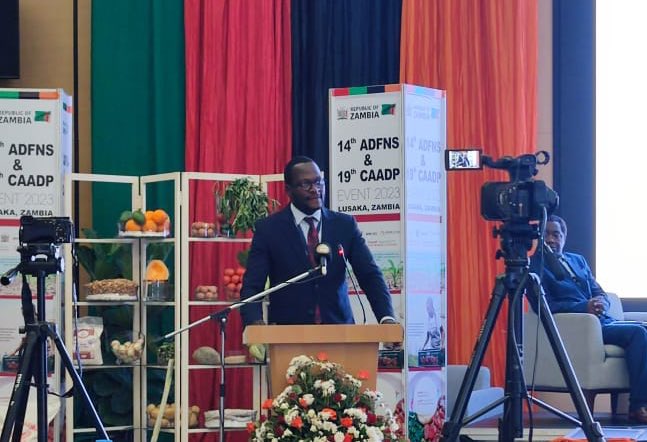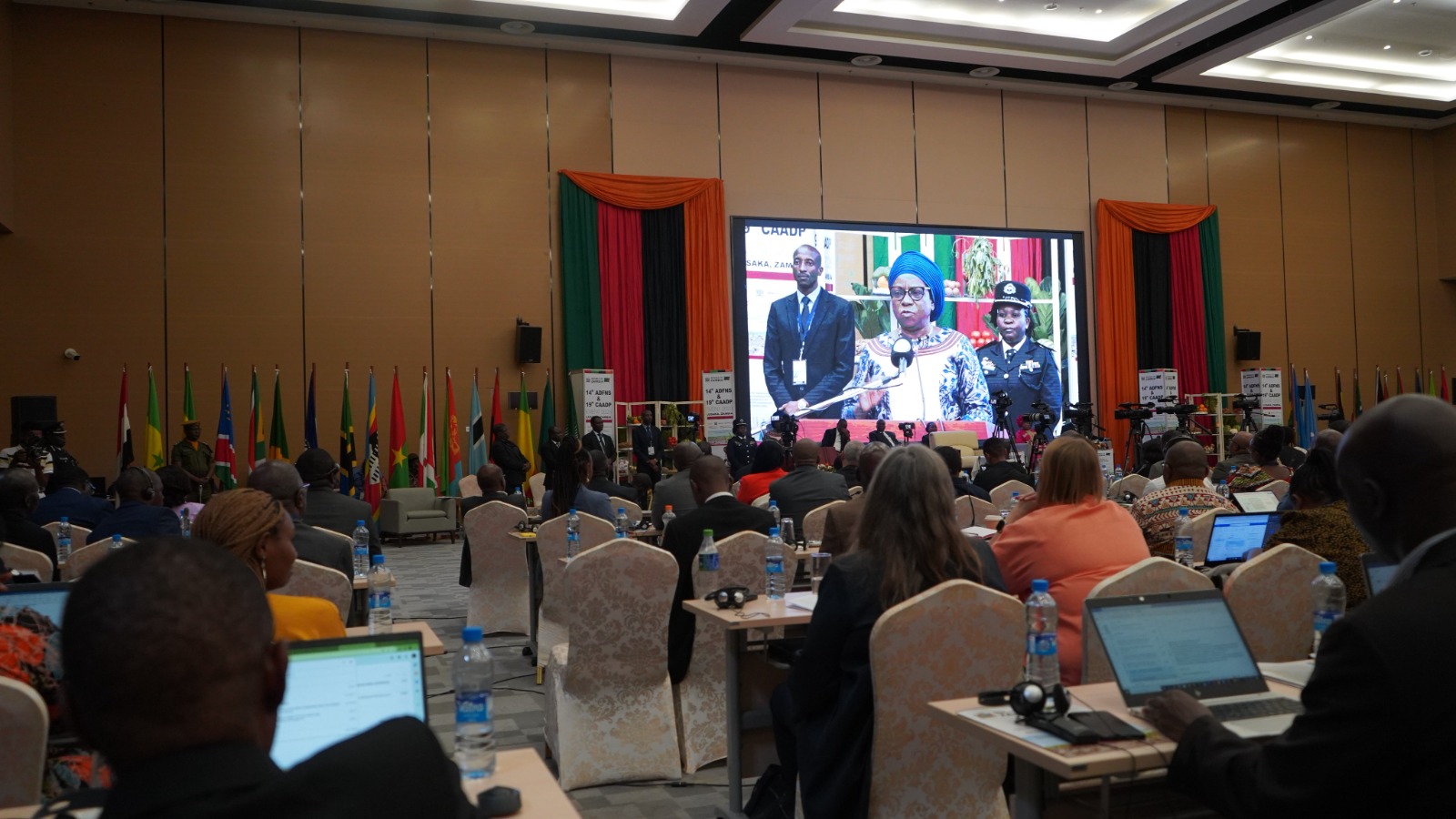
Director of Inclusive Trade, Markets & Finance at AGRA Daniel Njiwa, says Africa cannot achieve food security without improving intra-continent trade. He says the continent cannot ensure food system resilience if “our trade is not functioning very well.”
“Trade will remain the lubricant for conversations around food systems. It encourages producing in a diversified fashion where you can easily meet food security and nutritional targets,” he said.
Mr. Njiwa says intra-Africa trade can additionally help spur economic growth and markets if it is pursued aggressively. “It stimulates economic growth and improves incomes for smallholder farmers through market access,” he added.
He was speaking at the 2023 Africa Day for Food and Nutrition Security Commemoration and the Comprehensive Africa Agriculture Development Programme (CAADP) Partnership Platform meeting in Lusaka, Zambia, organised by the African Union and the African Union Development Agency.
CAADP is the Agenda 2063 continental initiative that aims to help African countries eliminate hunger and reduce poverty by raising economic growth through agriculture-led development. Through CAADP, African governments agreed in 2003 to allocate at least 10% of national budgets to agriculture and rural development, and to achieve agricultural growth rates of at least 6% per annum.
Underlying these investment commitments are targets for reducing poverty and malnutrition, increasing productivity and farm incomes, and improving the sustainability of agricultural production and use of natural resources. CAADP also supports countries to enhance resilience to climate variability through development of disaster preparedness policies and strategies, early warning response systems and social safety nets.

The meeting from 30th October to 2nd November is under the theme; “Accelerating the implementation of the Africa Continental Free Trade Area Agreement in the context of CCAADP commitments for safer and healthier diets.”
“Trade environment on the continent is facing a lot of challenges which can be dealt with. Policy and predictability, countries deciding without numbers and evidence, how to deal with import and export policies, and infrastructure to get goods from one point to the other is a problem,” Mr. Njiwa observed.
He is thus urging governments, private sector, and development partners to work together to improve trade on the continent, so Africa doesn’t have to import US$50 billion worth of food every year.
Mr. Njiwa called for increased attention on women and the youth so they can play a part in improving food security in Africa. “Women and youth are the most important players in agriculture. They are involved in moving over 80% of food traded in Sub-Saharan Africa,” he said.
“Many are involved in informal cross border trade. We need to find a way to get to work with women and youth and provide them with the necessary tools to participate more efficiently and more effectively in trade,” he added.
Vice president of Zambia, W.K Mutale-Nalumango called for immediate action to help transform food systems on the African continent. She told the meeting “speeches and declarations will not solve Africa’s problems, action will.”
“We know the challenges we face as a continent including stunting of children due to poor nutrition, so now is the time to act to address the challenges,” she added.



